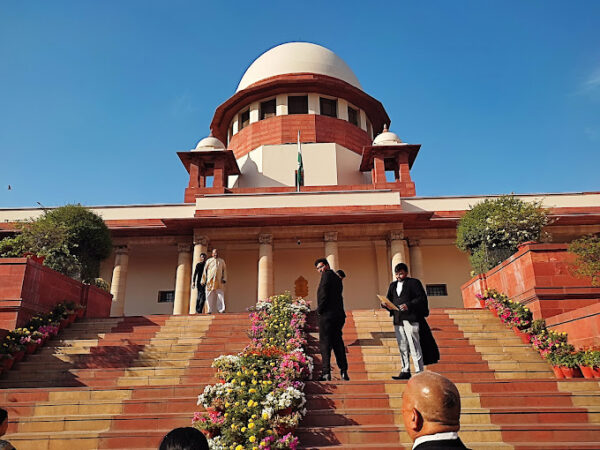News
Supreme Court Seeks Himachal Pradesh’s Response on Ecological Imbalance Amid ‘Crisis of Existence’

Highlighting Himachal Pradesh’s “serious existential crisis,” the Supreme Court on Tuesday directed the state government to respond to issues linked to ecological and environmental conditions, including tourism, high-rise construction, zoning, forest areas, compensatory afforestation, climate change, disaster management plans, road construction, hydropower projects, mining, and the use of heavy machinery.
A bench of Justice Vikram Nath and Justice Sandeep Mehta asked the state’s Forest Secretary to file a detailed affidavit by October 28 after considering a questionnaire submitted by amicus curiae K. Parameshwar on various ecological concerns.
“The questionnaire submitted by the learned amicus is comprehensive, and its answers are essential to move this case forward,” the bench observed. “They will assist the Court in framing guidelines and measures for the protection of Himachal Pradesh’s citizens and its fragile ecosystem.”
The Court specifically sought details of hotels, industries, and short-term rental accommodations approved by the state over the past decade, as well as measures, if any, to regulate tourism during peak monsoon season.
The bench also asked for data on the number of mining operations and leases currently active, pending approvals, the total number of rivers in the state and the hydropower projects operating on them (along with their start dates), and details of state and national highways, including the number of four-lane roads.
The order came while hearing a suo motu public interest litigation on ecological and environmental challenges in Himachal Pradesh, a state that has repeatedly suffered from natural calamities in recent years. The Court has earlier indicated its intention to extend the scope of the case to the entire Himalayan region.
Expressing grave concern over unchecked development, the Supreme Court had warned on July 28 that if such trends continued, “the entire state could disappear from India’s map.”
Acknowledging gaps in existing measures, the Himachal Pradesh government had earlier sought at least six months from the Court to draw up a comprehensive roadmap. In an affidavit filed on August 25, the state stressed the need to identify shortcomings and prepare a forward-looking plan to effectively address both recent devastation and ongoing challenges.
Reiterating its warning, the Court had said on July 28: “We want to make it clear to the state government and the Union of India that revenue generation is not everything. Revenue cannot come at the cost of the environment and ecology. If the situation continues as it is, the day is not far when Himachal Pradesh will disappear from the country’s map. God forbid that happens, but urgent corrective steps are necessary.”
The observations came while dismissing an appeal filed by M/s Pristine Hotels and Resorts Pvt. Ltd. against a Himachal Pradesh High Court decision upholding the state’s June 6, 2025 notification. That notification declared the Shree Tara Mata Hill a “green area” and banned all private construction there, including a proposed hotel project.
